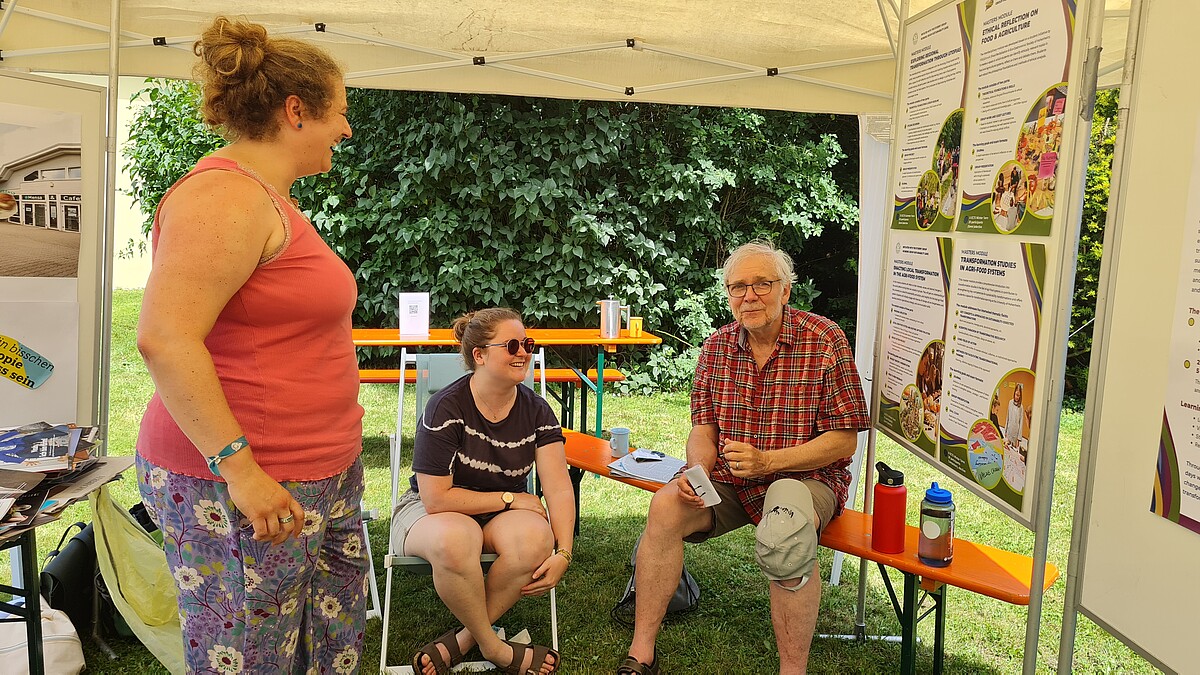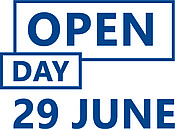At the recent University of Hohenheim open day, our stand, titled Transformation (Er)leben und (Er)lernen!, represented a collaborative effort between students and staff from the Department of Sustainable Use of Natural Resources (430c), the Department of Societal Transition and Agriculture (430b), and the Working Group Sustainability (AKN). Our aim was to highlight our commitment to promoting transformation in the food system by empowering our students with various skills for sustainable transformation. We offered the opportunity for discussions, showcased existing modules related to transformation, and opened opportunities to dream of our future campus.
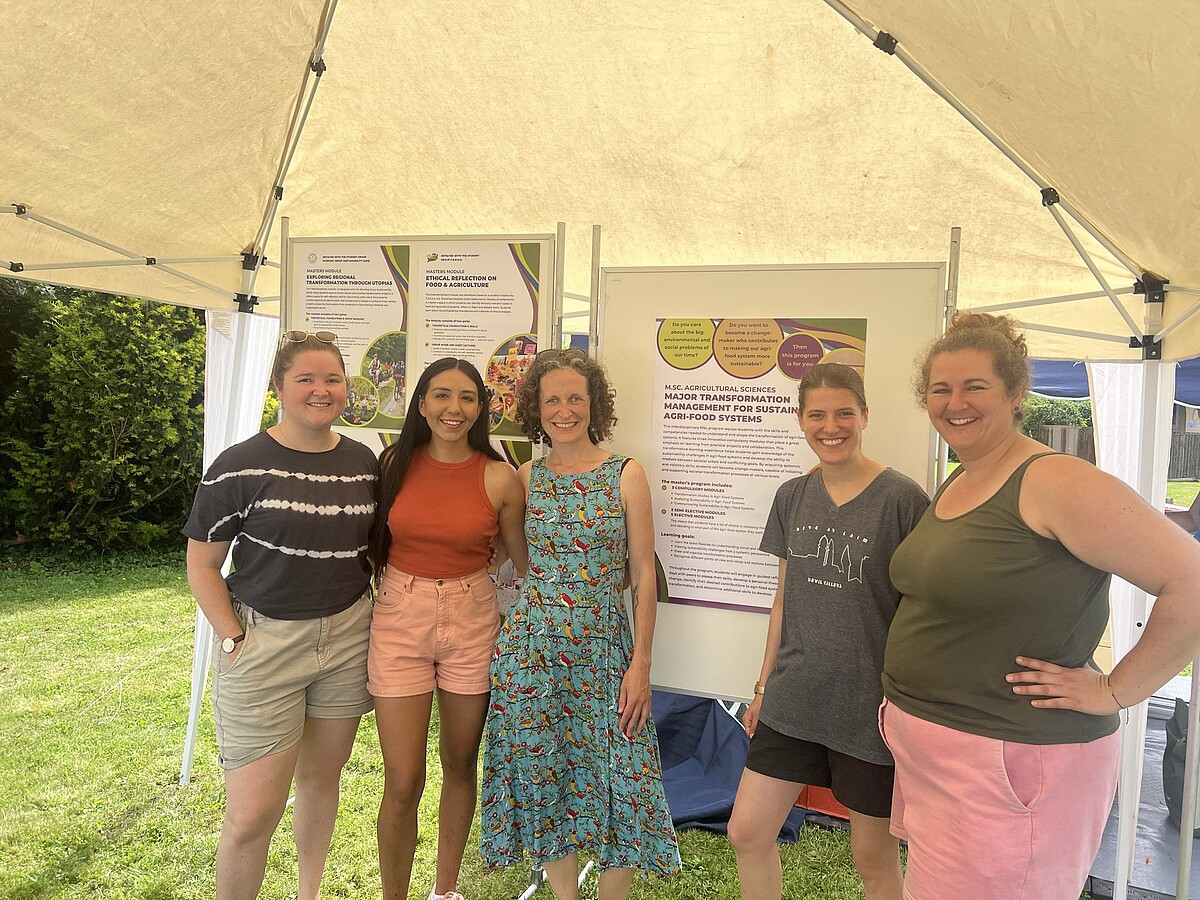
Voting on Sustainability Competencies
An interactive voting tool engaged participants in prioritizing sustainability competencies. Each participant received five beans to vote on the competencies they considered most important:
- Systemic Competence: Understanding the current situation.
- Interpersonal Competence: Collaborating effectively.
- Strategic Competence: Planning and strategizing for the future.
- Normative Competence: Defining desired outcomes.
- Anticipatory Competence: Predicting and preparing for future scenarios.
Interpersonal competence received the most votes, with many emphasizing the importance of learning to work together in today's politically charged environment. This feedback highlighted the relevance of fostering effective collaboration skills.
Participant Suggestions and Feedback
Participants also suggested valuable additions, such as Emotional Reflexivity to help individuals connect with their emotions, and improving IT infrastructure to better address global challenges. These insights will be considered as we continue to develop our curriculum and resources.
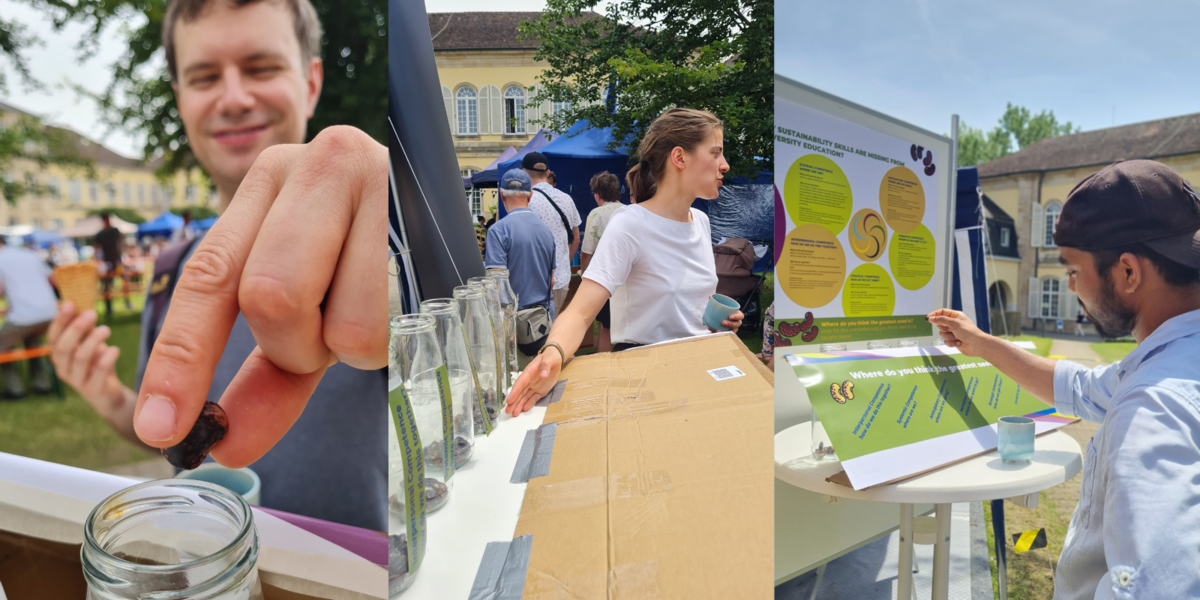
Introducing a New Major: Transformation Management for Sustainable Agri-Food Systems
One of the highlights at our stand was the introduction of the new major set to commence in the autumn term: M.Sc. Agricultural Sciences Major Transformation Management for Sustainable Agri-Food Systems. This innovative program is designed to equip students with the skills and knowledge necessary to lead transformative changes in the agri-food system towards sustainability.
Showcasing Transformative Modules
To provide insights into the new major, we showcased four modules that exemplify our transformative approach:
- Enacting Local Transformation in the Agri-Food System
- Ethical Reflection on Food & Agriculture
- Exploring Regional Transformation Through Utopias
- Enacting Local Transformation in the Agri-Food System
These modules highlighted our commitment to addressing both practical and theoretical aspects of sustainable transformation in agriculture.
Engaging Activities: Visioning and Collage Building
Visitors to our stand experienced a unique visioning method. They relaxed in deck chairs while listening to a guided tour of their dream campus in 2030. This activity was well-received, with participants leaving in good spirits. One particularly enthusiastic attendee spent 15 minutes drawing his vision on the poster, and another participant, interested in organic agriculture, enjoyed the concept of an edible campus.
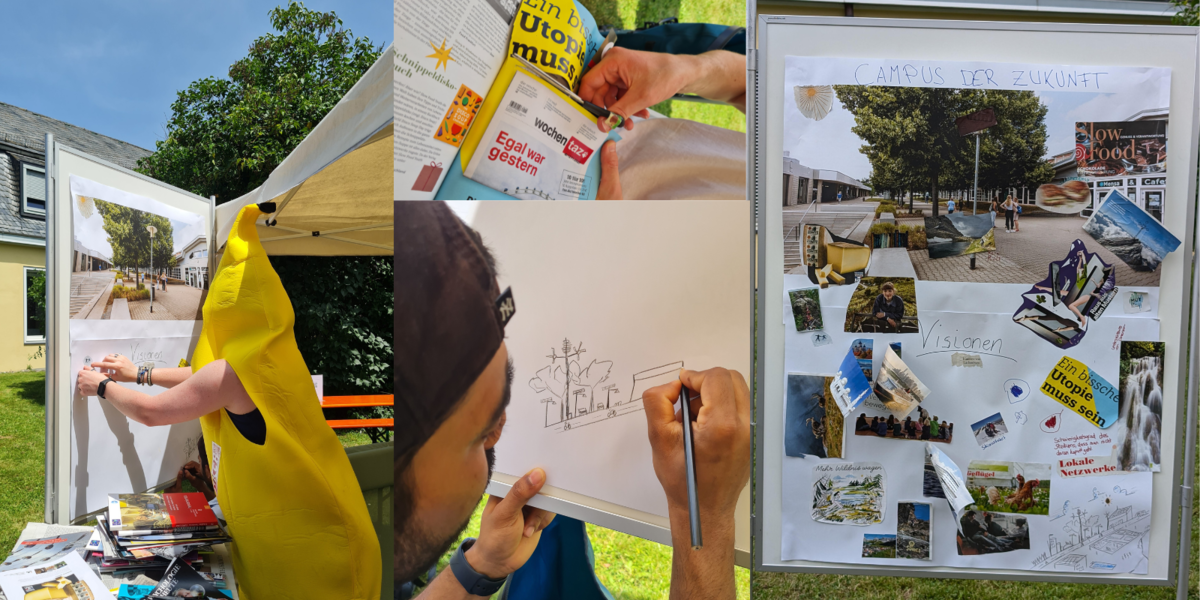
Exploring Future Campus Scenarios
We presented three audio scenarios, each depicting a different future vision for the campus:
- Edible Campus: A campus filled with delicious plants, serving as a learning space and food source.
- Rewilding Campus: Allowing nature to reclaim and flourish within the campus.
- Learning Space Campus: Focusing on the university as a continuous learning hub.
These scenarios sparked lively discussions and allowed attendees to envision the potential future of our campus.
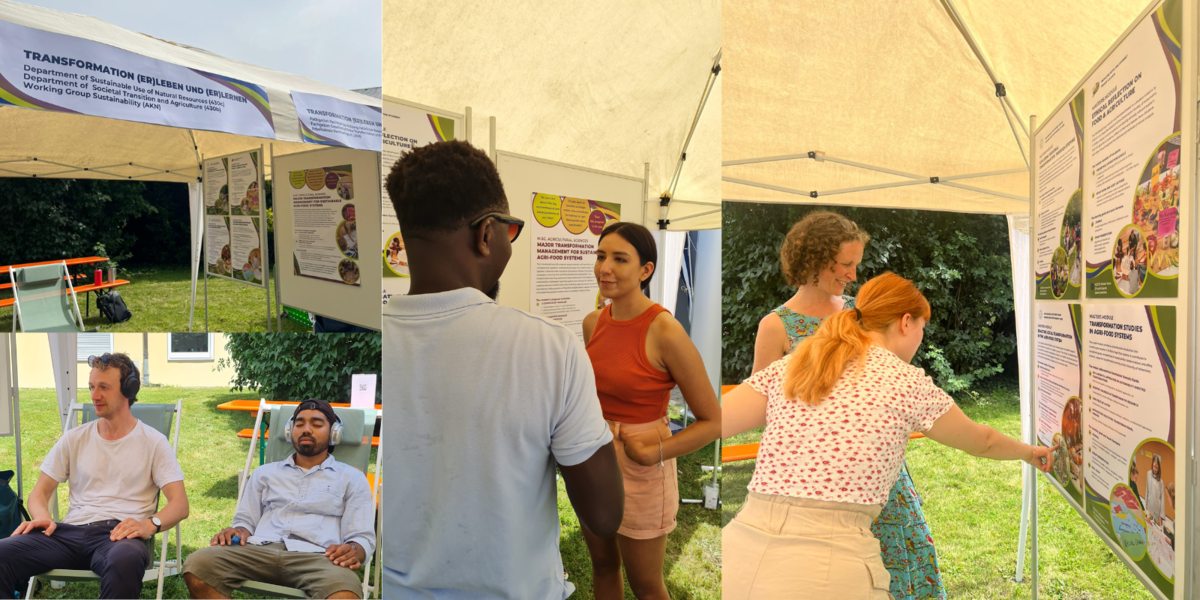
A Welcoming Atmosphere
Despite the hot weather, the atmosphere at our stand was welcoming and lively. Positioned next to the AKN stand selling ice cream, we enjoyed a steady flow of visitors ranging from young children to older, retired individuals who shared their life stories with us. This diversity added richness to the event, fostering a sense of community and shared purpose.
Conclusion
Our stand at the University of Hohenheim's open day successfully showcased our dedication to sustainable transformation in agriculture. We engaged meaningfully with participants, provided valuable insights into our new major, and gathered important feedback to refine our programs. We look forward to welcoming new students and continuing our work towards a sustainable future.
